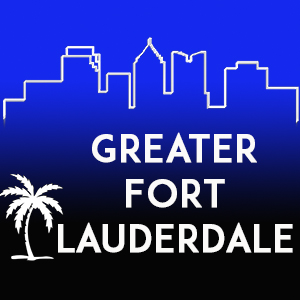
This program is presented as part of the exhibition Nazi Persecution of Homosexuals 1933 – 1945, in partnership with the United States Holocaust Memorial Museum, on exhibition until October 14. Please note, due to the size of our current exhibition, this event will be held at the Pride Center.
For decades after the collapse of the Third Reich, almost nothing was heard from gay victims of Nazi persecution. The principal reason was that the tougher Nazi law against homosexual offenses was, alone amongst the harsher versions of the Nazi criminal code, not rescinded. It stayed in effect until 1969 in West Germany. The arrest rate of alleged homosexuals in the 1950s remained at the unprecedented, high levels of the late 1930s. Victimhood was perpetuated. The rise of the gay emancipation movement in the 1970s spoke up against this silence, and claimed that millions of gay men had, parallel to the Jews, suffered a ‘Homocaust’. This was quite untrue, but the intense homophobia of Nazi Germany, with Heinrich Himmler in the forefront, had caused unparalleled suffering and widespread murder.
There were almost no memoirs, and the elderly victims were growing fewer with the march of time. The United States Holocaust Memorial Museum invited me in 2000 to spend a year as their Senior Scholar-in-Residence, in order to help fill this gap in the research. This paper will explain why homosexuals were perceived as such a prominent racial ‘enemy’ of the Nazis, and how growing frustration with the difficulty of identifying who was actually a homosexual led to a growing panic among some Party and state authorities, leading eventually to a mandatory death sentence for those found guilty in the ranks of the police and SS.
The Nazis were confident that they could kill all the Jews in Europe, and were horrifyingly well on the way to this by 1944. Yet the regime depended for its legitimacy on struggles against internal enemies. There were many millions more homosexuals than Jews in Germany and beyond, by their own estimation. And so it is probable that this may have been their next big target group, already disdained by much of the population, as the Jews had been. This is why it is important to consider the developing policies of the regime toward these outsiders, alongside the attention that has already been rightly devoted to other groups, such as the gypsies or the mentally handicapped.
ABOUT GEOFFREY GILES, Ph.D.
Geoffrey Giles received his Ph.D. in history from the University of Cambridge. Following four years as a postdoctoral fellow in a Yale University think tank, he taught German and European history at the University of Florida for 35 years, before retiring as an emeritus professor in 2013. He served for several years at the University of Florida on the President’s LGBT Concerns Committee. Since 2000, he has been a senior vice-president of the Friends of the German Historical Institute in Washington, DC.
Beginning in the 1990s, Geoffrey Giles led several traveling study seminars for college faculty to meet with museum staff at the death camps and other Holocaust sites in Poland, the Czech Republic and Germany, on behalf of the Holocaust Educational Foundation. Dr. Giles also served for many years on the State of Florida Education Commissioner’s Task Force on Holocaust Education.
In 2000, he was invited to spend one year as the Senior Scholar-in-Residence at the United States Holocaust Memorial Museum’s Center for Advanced Holocaust Studies in Washington DC, with the request to deepen research on the hitherto neglected victim group of homosexuals. Whilst there, he was an adviser for the Museum’s subsequent and current traveling exhibition on the “Nazi Persecution of Homosexuals, 1933-1945”. He continues to lecture regularly on the topic at universities, museums, and conferences. He has recently given a keynote address to a symposium on “Masculinities” at the Université Sorbonne Nouvelle in Paris; a paper on “The Silent Victims: Homosexuals in the Wake of the Holocaust” at a genocide and human rights conference at Kalamazoo College, Michigan; and an Athenaeum Lecture at the Mgrublian Center for Human Rights at Claremont-McKenna College, California.
Additional information available HERE.

